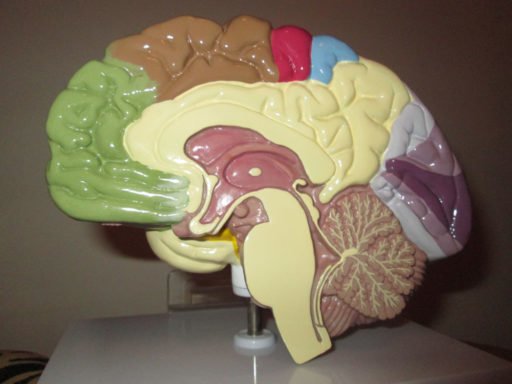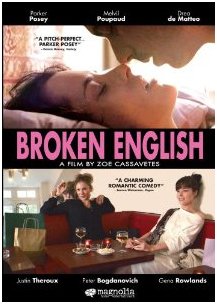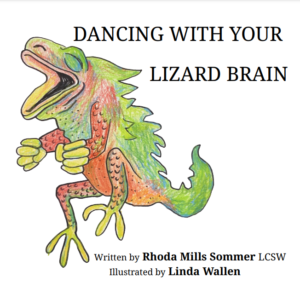
Your Brain can be an extremely useful tool in reducing stress. Relieve stress and you will enjoy life & live longer.
If you are lopsided in feeling too much then you need to learn to use your brain to think through those mischievous emotions that run away with you into the land of false drama. If you find too much safety in ignoring your feelings and hiding from them then you can use your brain to learn about emotions instead of burying them to cause you trouble late
Neuroplasticity means the brain can change based on new experiences. One of my dearest friends was very upset because both her cats developed tragic health problems at the same time. It made her very anxious to sort out end of life decisions and she decided to use mindfulness meditation to soothe herself. This made a big difference because she was able to soothe herself.
What makes breaking up with someone you love so stressful? Researchers from Stony Brook University are able to explain what makes broken hearts so unbearable. Brain images clearly show a link between “romantic rejection and a cocaine craving”. So breaking up is like giving up cocaine to the brain.

Taking Action:
to improve the mind/body response to stress can be very helpful:
1. Stay in the Present– It’s leaping into the future with worry that creates piles of stress. Use all 5 of your senses to bring yourself in the present.
2. Exercise or Movement– instead of sitting in a chair or laying about. This is the simplest thing you can do to reduce stress. Do something physical when you feel stuck can be refreshing. The brain loves novelty so try walking in a new neighborhood instead of repeating the same route.
3. Consider what is Possible– It’s easy to get stuck in negative thinking. Positive thinking often doesn’t ring true. Thinking about options and soliciting suggestions from others can be helpful. Take a break from the stuckness by doing something different for 15/20 minutes. Recognize that small steps matter.
4. Get enough sleep-Try to go to bed at the same time & wake up at the same time so you can wake up without an alarm clock. Lack of sleep has been linked to both depression & cognitive decline.
5. Create a structure for your day-Dark emotions love to travel unchecked when people have to much time on their hands. Sometimes there is too much time to obsess more.
6. Interrupt Obsessive Overthinking.-We have to learn to control our own thinking. The stress of obsessiveness can overload the brain & stop us from moving forward. So get an egg timer or use your phone & set it for 20/30 minutes of obsessing & feeling bad. When the alarm goes off you must shift to something else. This is training yourself to only use the time allotted. (If you need to use two time slots a day or three, then cut back every 3/4 days until you are down to once a day.)
7. Don’t “borrow” stress from others.-Sometimes you need to recognize that hanging out with someone else only increases your stress. When you are overwhelmed you are not helpful to anyone, it’s ok to describe this to them & leave.
8. Stop avoiding difficult feelings-It’s very stressful to the mind & body to hold back tears. Swallowed anger can evolve into a very ugly self righteous dump on someone else. Learn what is authentic for you inside & try to face hard things. The more practice you have, the easier it will be. Running away from being uncomfortable stops you from growing & developing character.
9. Interrupt Perfectionism-Perfectionism is exhausting & relentless. Ask yourself what the opposite would be? Work at accepting imperfection as reality. Wear a rubber band & snap it lightly when you feel your standards starting to bury you & say “Enough. It’s good enough.”
10. Don’t Lie-Lying causes a lot of conflict within which can be very stressful. A recent study at the University of Notre Dame in Indiana by Dr. Anita Kelly found that “When their lies went down, their health improved.” Americans average 11 lies a week. So there is a health bonus to being authentic.
11. Budget instead of drowning in worries about $$$-Financial stress is all too real but all you can do is face your financial woes. So many people just ignore their money mess & this increases stress.
12. Take Enough Time to Accomplish What Needs to be Done
Triggers
Be aware that stress can be a trigger for all types of addiction, from shopping to the epidemic of heroin because it’s cost is so low ($10. for a dime bag to be lost from the real world for hours)
Think about your triggers for stress, make an honest assessment. For Example: It is an ordinary trigger to jam too many things to do into not enough time. So take action by either reducing the list or allow more time. This could be an every day conscious effort of steps to be different.
What are your personal favorite triggers? Make a list & pick one to change.
Here is a TED Talk by psychologist Kelly McGonigal that asks us to think more positively about stress which can make a big difference. We need to reinterpret stress as “this is my body helping me to respond to this challenge.”
Ways to Calm Stress & Clear the Mind
1. Six minutes of Reading produces a slower heart rate according to the University of Sussex as reported in The Telegraph because the brain has to concentrate on reading.
2. Pets, Gardening, get a massage & Yoga
3. Listen to fun music
4. Hiking in Nature
5. Learn a breathing technique and use it every day.
Breathe in & out through your nose. Focus on the temperature difference.
Cool air in & Warm air out. It is impossible to obsess while doing this
exercise because you have to use your brain to think.
6. Use Mindfulness Meditation on a daily basis which research shows soothes the brain. Try the Insight Timer APP which offers hundreds of meditation choices that you can listen to on your phone!
Here is one sample by Lori Granger MFT:
Useful Books
The Mayo Clinic Guide to Stress-Free Living by Amit Sood MD and Mayo Clinic
Broken Open: How difficult Times Can Help Us Grow by Elizabeth Lesser
Change Happens: When to Try Harder and When to Stop Trying So Hard by Avrum Geurin Weiss
Helpful Link
Heart Math– they have developed technology to self monitor & train for a more stress free life (a bit pricey)
Movie of Stress






